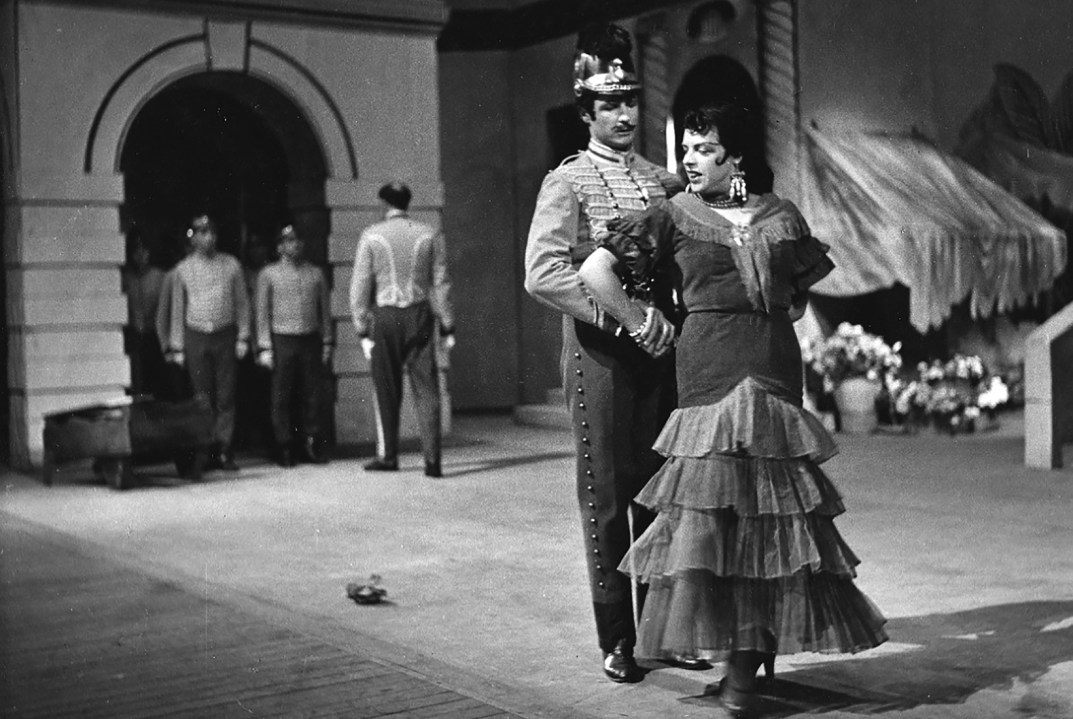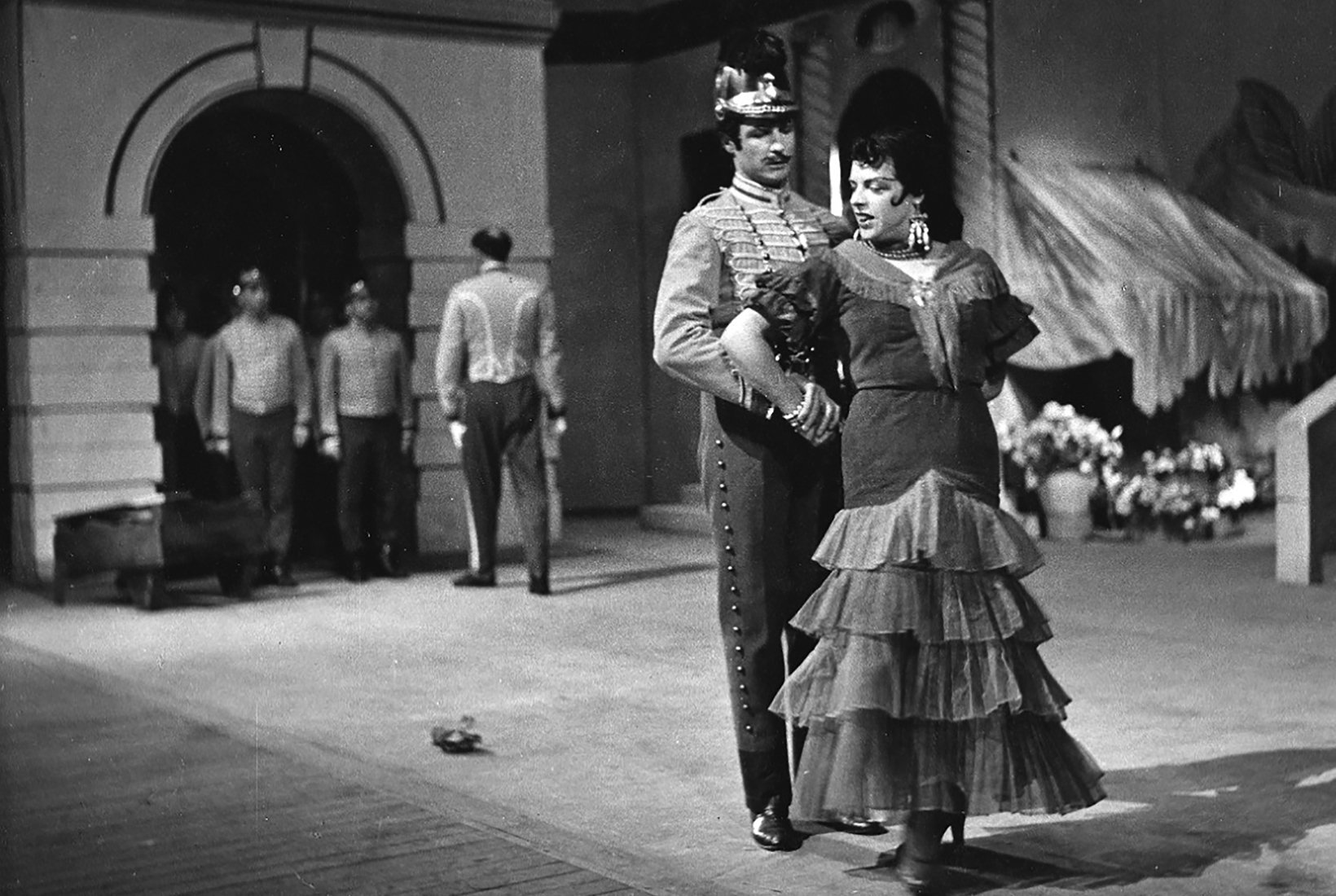Early in 1946, two men boarded a train at Euston and went trawling for talent. Audition notices were posted at town halls up and down the land: singers wanted, no experience required. Two thousand applied. One town after another, they lined up for Karl Rankl, Covent Garden’s music director, and David Webster, its general manager.
Those who sang in tune were hired, £8 a week for chorus, £40 for soloists. An organist in a Harrogate church was appointed chorusmaster. ‘At Carmen rehearsals,’ recalled Constance Shacklock, a farm girl from Nottinghamshire and future star, ‘none of us had ever seen a Carmen before, let alone sung one.’
By mid-year, Covent Garden had a credible opera company. Within five years it was world-class, performing Richard Wagner’s Ring cycle and Alban Berg’s modernist Wozzeck. Indigent continentals such as Kirsten Flagstad and Elisabeth Schwarzkopf added gloss and know-how, but the core ensemble was homegrown. ‘We were building a British opera company,’ Shacklock told me not long before her death in 1999. ‘We were working as a team to build something of value, something the country could be proud of.’
In 2016, shortly after Britain voted to leave the European Union, I had breakfast with Covent Garden’s head of opera, Oliver Mears, to see if there were lessons to be learned from the company’s origins. It was clear from the Brexit result that opera would have to reconfigure casting practices. Singers from Europe would require visas. A substitute could no longer be flown in on the day. We were going to need an ensemble of British singers to cover most roles, with the occasional Netrebko or Kaufmann jetting in as box-office candy.
Young British singers were joining German companies because they could not get roles in London or Leeds
So much had gone wrong down the years in British opera, most of all an overdependence on third-rate imports at the expense of native talent. On flights to Munich and Vienna, I’d find myself sitting next to young British singers who were joining German companies because they could not get roles and experience in London or Leeds. The ROH fielded fewer England players than Chelsea football club. English National Opera, which sings in the vernacular, had phonetic crib sheets for Baltic tenors. The justification was that they were cheaper and better educated than locals, for which our music colleges and academies were largely held to blame. But this was no more than an excuse for lazy collusion with global agencies and American ‘artistic advisers’.
A greater effort to develop talent was made by the country house festivals, Glyndebourne, Garsington and Grange Park, where Welsh soprano Natalya Romaniw and Irish mezzo Tara Erraught got their breaks while state-funded companies negotiated role-swaps with the Met. Whatever happened to ‘something the country could be proud of’?
Covent Garden’s Jette Parker programme trains Ukrainians and Uruguayans ahead of Glaswegians and kids from Grimsby. Brexit, like it or not, presented a heaven-sent opportunity to start over, to summon our national resilience, faute de mieux, to rebuild our opera houses from the roots up. Mears warmed to the idea, and we breakfasted again.
It is not just opera, of course, that needs to regenerate. Many of our orchestras went astray in pursuit of international prestige and easy pickings. The applause sounds louder in Barcelona than in Basingstoke and there are savings to be made as one rehearsal can cover the whole tour. Look at the annual accounts of London orchestras and you will find warnings that their actual existence will be jeopardised if touring dries up, as it must during Covid and after Brexit.
Haring after cheap euros, orchestras replaced a distinctive sound — admittedly, sometimes gritty — for the ubiquitous blandness of a Starbucks flat white. I used to be able to tell one London orchestra from another blindfolded. No longer. Aside from three or four razzle-dazzle soloists, Simon Rattle’s LSO can hardly be told apart from any of the jet-set orchestras that flit through the Barbican on their way to Bordeaux, Budapest and Beijing. The London orchestras made their names with British players fresh out of uniform and a knot of Hitler refugees who could sightread any score and polish off a symphonic recording in three sessions flat, a world record.
Today, we recruit players from all over the continent and orchestras go for months or years without a leader — ‘concertmaster’ in European usage — because players of diverse backgrounds cannot agree on the what they are looking for. The City of Birmingham Symphony Orchestra recently appointed a Romanian, Eugene Tzikindelean, who lives in Copenhagen and has a second job in Odense. He is a superb player with a charming manner and a rigorous ear, but no business can thrive on job shares and Brexit has anyway put the kibosh on any more international hires. We need to find leaders in our own midst.
There is a musical upside to this. If UK orchestras stop touring, they will have to think more of home audiences and their tastes. This could mean a return of English symphonies, a full cycle — at last — of Vaughan Williams and Malcolm Arnold, followed by Peter Maxwell Davies and David Matthews. London orchestras will get out more around the country. The Liverpool Phil should have a residency at the Albert Hall, not just an overnight at the Proms.
Rattle’s escape to the Munich Bierkellers is a warning to orchestras to shun air-mile maestros and recruit local. Birmingham Opera Company has installed Alpesh Chauhan, who grew up just down the road. The London Philharmonic has Ed Gardner. Mark Elder at the Hallé is a one-man baton factory, training Jamie Phillips, Jonathon Heyward, Andrew Gourlay and others as his assistants. Also coming through are Duncan Ward, Jessica Cottis, Kerem Hasan. Has the penny begun to drop? Brexit and Covid have pushed Britain out of the common musical market and thrown us back on homegrown sprouts.
The Royal Opera, immeasurably stronger than it was in 1946, can call on three generations of stage veterans for sage counsel. Summon the knights and dames — Thomas Allen and Bryn Terfel, Anne Evans and Sarah Connolly, John Tomlinson and Willard White — and let them choose and train the talent of the future.
I suggested to Oliver Mears that television might be keen on a Britain’s Got Opera search for new divas and Dons. Sure enough, the terrestrials lit up at the idea, but then the proposal went up to the Covent Garden board and that’s the last I’ve heard of it.
Like all UK arts institutions, the ROH is too busy with a current crisis to look up and see blue sky. Nothing will be done until the wolf is at the door, even though we’re now hearing the howls. Not all of our orchestras will survive 2021. One chief conductor, nameless for obvious reasons, expects two to go bust in London and two more in the regions.
It’s imperative that we use the Covid down time to build for the future. No point in looking to the Arts Council, which inhibits more than it stimulates, or to arts boards, which are made up of honours seekers and the idle rich.
The arts think they will muddle through this crisis as they always do, but nemesis is knocking at the door. No Eurekas are coming out of Zoom conferences and no one has yet figured out how to make money from streaming concerts and opera. Two years’ revenues will have been lost before full performance is restored. What’s needed is a central figure, a musical tsar with Downing Street access, a new face who can water some green shoots and spread hope of revival.







Comments